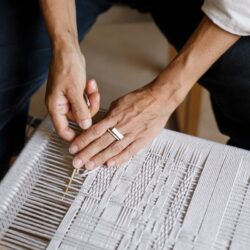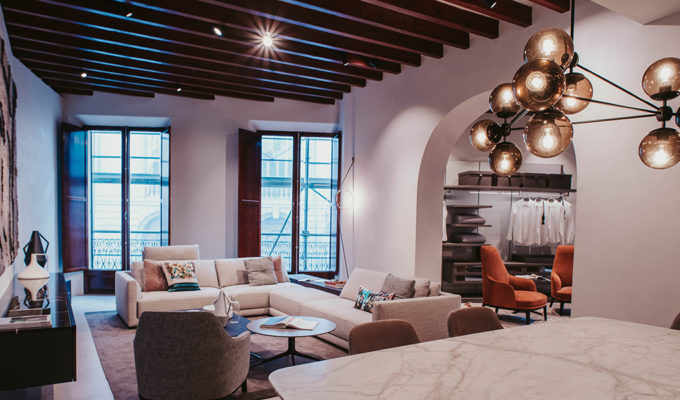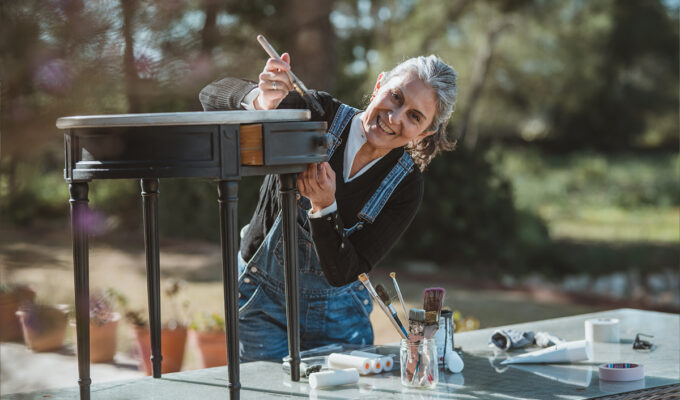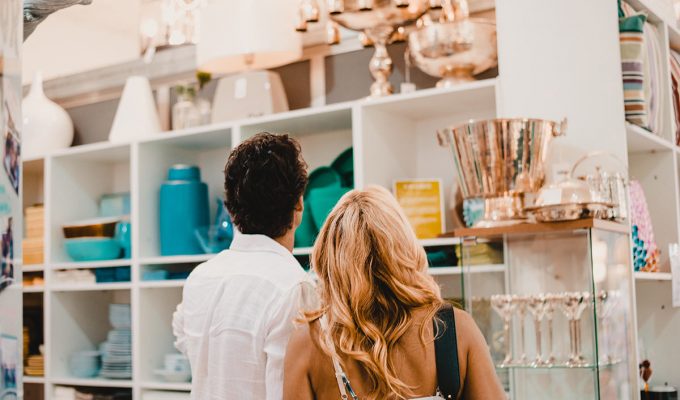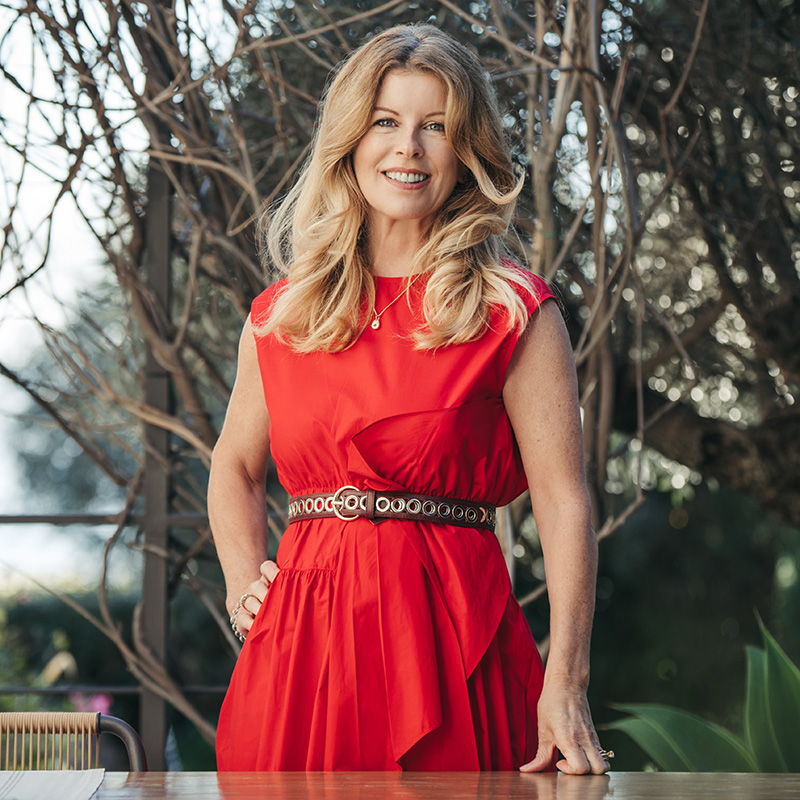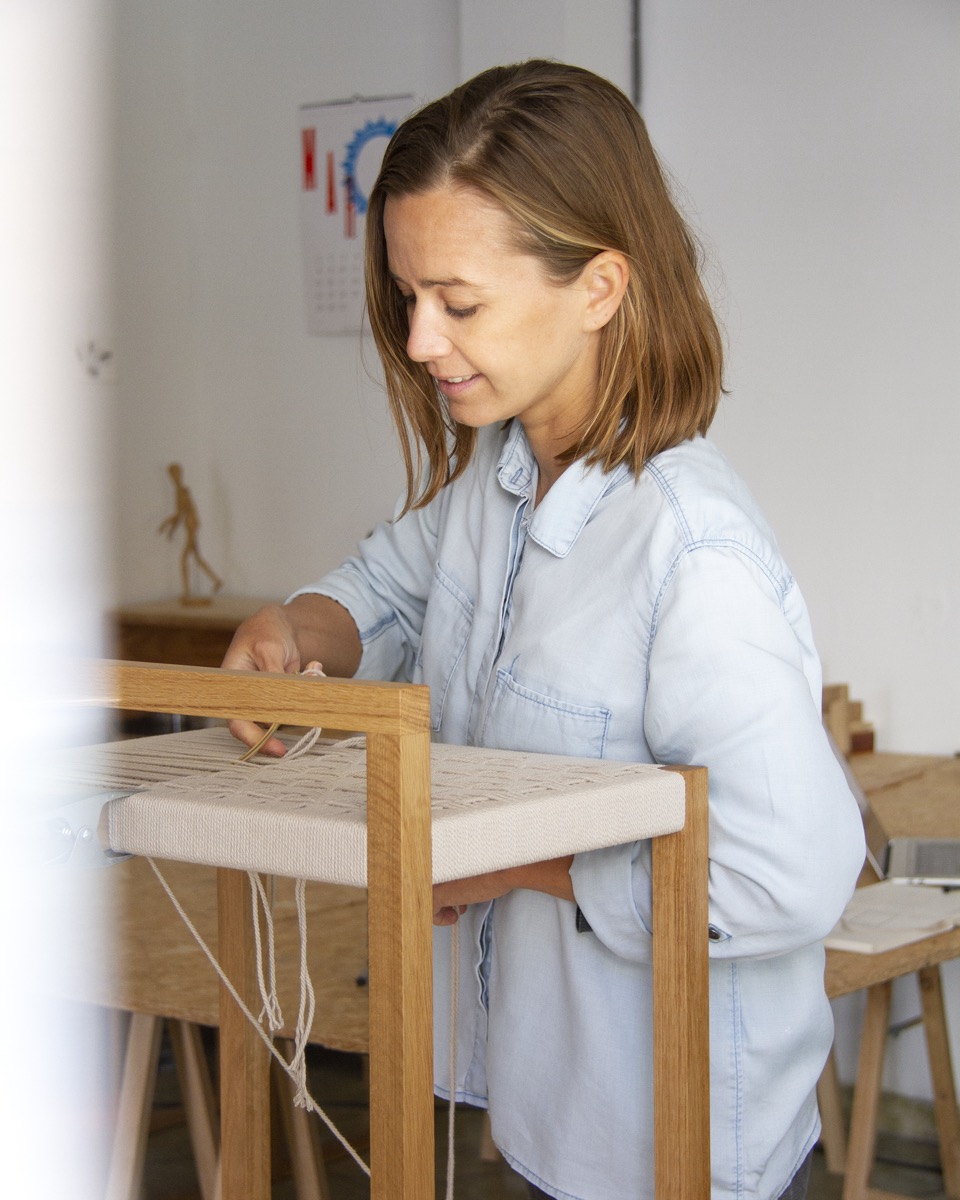
For Anna Lena Kortmann, weaving isn’t just about thread and frame—it’s about connecting past and present, memory and place. A German-born designer who once moved fluidly between global cities and large-scale architecture projects, Anna Lena found unexpected creative grounding on the sun-drenched island of Mallorca. What began as a yearning to work with her hands has evolved into a quietly powerful project: reviving a near-forgotten island craft and giving it contemporary form. In her Palma studio, geometric frames and textured cords come together in pieces that feel both tactile and timeless. Through her work, Anna Lena not only honours the artisans who came before her, but helps ensure their legacy lives on—in homes, hotels, and the everyday moments in between.
A life of creative flow
Anna Lena’s path to Mallorca meandered through Cairo, Wellington, Paris, and Berlin—each place adding a layer to her sensibility as a designer and human. Born in Germany and raised partly in Egypt, her childhood memories are coloured by the vibrant chaos of Cairo: camel markets in the morning, friendly strangers, and the hum of a city alive with contradiction. “It was just normal then,” she says, “but looking back, it left a mark.” That spirit of curiosity led her to travel, study, and work across continents, eventually landing in Berlin where she spent over a decade in architecture and exhibition design.
It was a spontaneous trip to Mallorca that shifted the trajectory. “I expected clichés, but what I found was depth.” After falling for the dramatic cliffs of Banyalbufar, she and her partner made a bold decision—balancing life between Berlin and the island, then fully settling in 2015. Soon after, she discovered a traditional weaving technique passed down through Mallorcan households. Taught by a craftsman in Llucmajor, Anna Lena began experimenting at home, combining time-honoured patterns with her own minimalist sensibility. From the beginning, it felt like more than furniture, it felt like storytelling in structure and thread.
Today, she designs and handmakes modern furniture inspired by these vernacular techniques. Her signature pieces are woven stools, benches, and bedside tables created using recycled cotton cord spun in Spain, sometimes blended with hemp, and framed in local oak. Every design is intentional. “The geometry speaks,” she explains, referencing inspiration from architectural lines, natural gradients, and local motifs like sun-faded fences and shadow lattices. Each piece carries a woman’s name: grandmothers, daughters, friends—quiet tributes to those who have shaped her.
Living and creating slowly
While her studio in Palma hums with creativity, Anna Lena balances her roles as artisan, mother, and small business owner with surprising calm. “It’s not always slow,” she laughs, “but here, you’re reminded to pause.” Weekly early-morning swims with a fellow creative offer quiet ritual. So does stepping outside to see the horizon—“That alone resets me.”
Her approach to making reflects that same grounding. There’s no online shop. Orders are placed personally, often via email, with clients selecting their colourways and pattern combinations. “People want to be part of the process,” she says. Larger commissions, like recent collaborations with Mallorcan hotels, are carefully produced over months, never rushed.
Sustainability is embedded in every step, not just through material sourcing, but through a belief in meaningful production. “It’s not just about avoiding waste,” she says, “but making something worth keeping, something someone might hand down.”
By reviving this near-forgotten craft, Anna Lena isn’t just designing furniture, she’s weaving memory into form, and reminding us that beauty made slowly, and with heart, will always endure.



